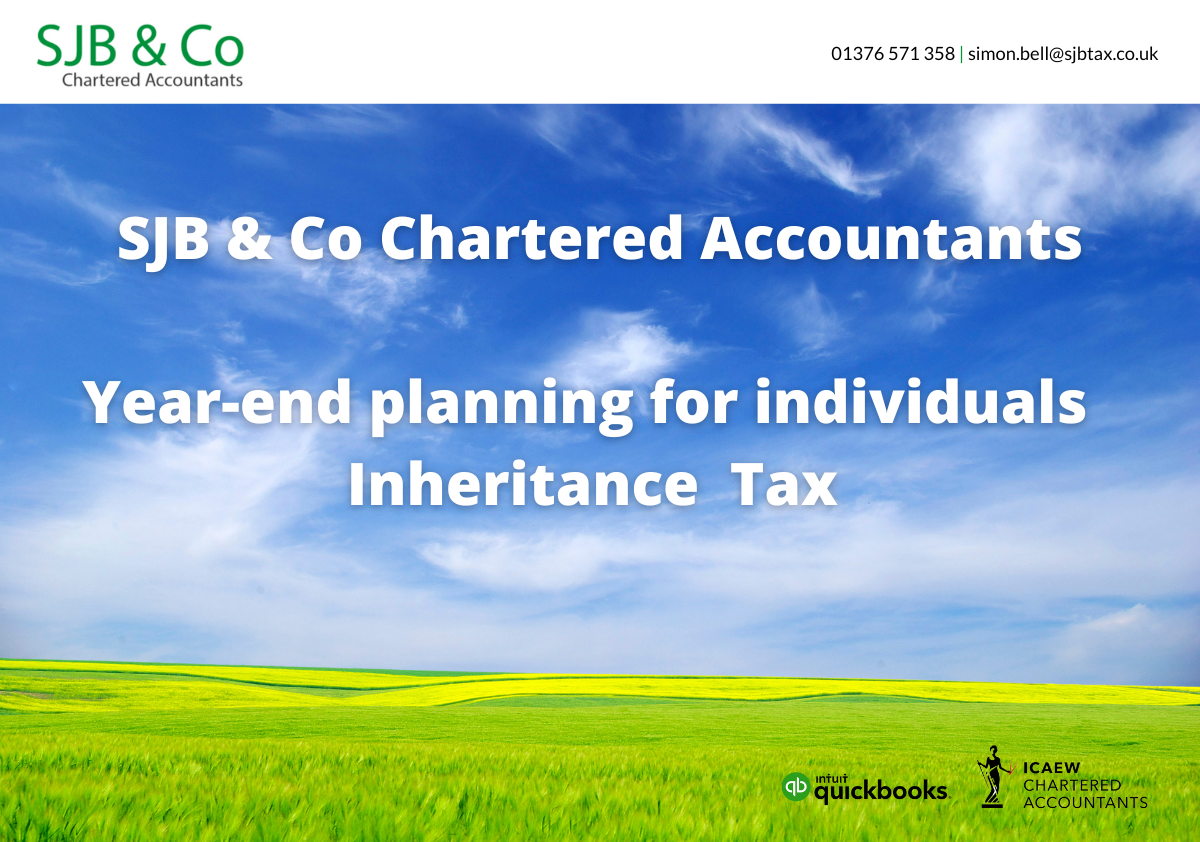IHT is payable when a person dies, and their estate exceeds certain limits. It is also potentially payable on gifts made by an individual during their lifetime if the gift was made in the seven-year period prior to their death.
Small lifetime gifts can be exempt. These include:
- Gifts made out of your disposable income, Christmas or birthday presents for example.
- Other gifts up to £3,000 per tax year are exempt from IHT. An unused allowance can be carried forward for just one year.
- Wedding or civil ceremony gifts of up to £1,000 per person (£2,500 for a grandchild or great grandchild, £5,000 for a child).
- Payments to help with another person’s
living costs, e.g., an elderly relative or a child under 18. - Gifts to charities and political parties.
Larger lifetime gifts are potentially chargeable to IHT. The potential liabilities are:
- IHT is payable at 40% on gifts you make within 3 years of your death.
- Gifts made between 3 to 7 years of your death are tapered. The effective rate of IHT charged reduces from 40% down to 0%.
- Accordingly, these gifts are not included in the valuation of your estate after seven years.
Other situations that will affect your estate’s liability to IHT include:
- Any assets left to your spouse are free of IHT.
- If the value of your estate is below £325,000, no IHT is payable.
- If your previously, deceased spouse did not use their £325,000 threshold, you can add this to your exempt threshold. Effectively, in these circumstances, your estate would pay no IHT if valued at less than £650,000.
- Since April 2017, an additional main residence nil-rate band applies when a residence is passed on death to a direct descendant. This additional relief will make it easier for families to pass on the family home without a tax charge. The relief amounts to £175,000.
Work though the check list that follows and if any apply to your circumstances call to discuss your options. You may also find are articles on year-end matters for individuals for income tax and capital gains useful.
Inheritance Tax (IHT) Planning Check List 2022-23
- Revalue your estate each year and take steps to minimise any future IHT liabilities if your estate valuation has increased.
- Make sure you have an up-to-date Will. Dying without a Will can cause all sorts of problems for your surviving family as well as affecting your IHT liabilities.
- If you own assets in excess of your available IHT exempt threshold, consider transferring assets into trusts or make lifetime gifts in order to reduce your family’s exposure to IHT. Timing the creation of a trust can be critical and can have significant tax implications. Professional advice on these matters should be taken sooner rather than later.
- Make the most of the annual gift exemptions. You can only carry forward the £3,000 unused annual allowance for one year.
- If you make regular gifts, say a contribution to grandchildren’s school fees, in excess of the £3,000 gifts allowance, you may still avoid any IHT charge on the excess if you can demonstrate that the gifts were made out of your disposable income. i.e., you do not have to dig into your saving to make the payments. Keeping accurate records of your gifts and disposable income is a key factor in claiming this relief.
- If you own a business, take advice on the potential IHT risks and the availability of Business Property Relief. This planning should probably be combined with consideration of the continuing ownership and control of your business after your death.
- You can reduce the rate of IHT on some assets from 40% to 36% if you leave more than 10% of your estate to charities.
- If your estate includes significant property holdings this may mean that your executors have to sell property in order meet IHT payable. It may be prudent to leave instructions on which property(ies) to sell.
- If your circumstances change, for example, if you divorce or re-marry, make sure you make a new Will and reconsider your IHT planning to make sure it is still relevant to your changed circumstances.
- If possible, reduce your exposure to IHT by transferring assets out of your estate. Bear in mind that these transfers, lifetime gifts, may not fully reduce your IHT liability until the 7-year period after that gift is made has expired.
- It may be possible to transfer the ownership of your interest in a business without losing control. You will need to take specialist advice.
Whilst making gifts and other IHT planning may be a good idea, it is important to ensure you retain sufficient income and assets to enjoy life. One way to reduce your estate is by spending your money so enjoy doing so while you can!
For more information or to discuss any issues raised above please contact Simon Bell by phone on 01376 571358 or email [email protected] . This article is written in general terms and therefore cannot be relied on to cover specific situations. Applications of the principles set out will depend on particular circumstances. It is recommended that you take professional advice before acting or refraining from acting on any of the above content.






